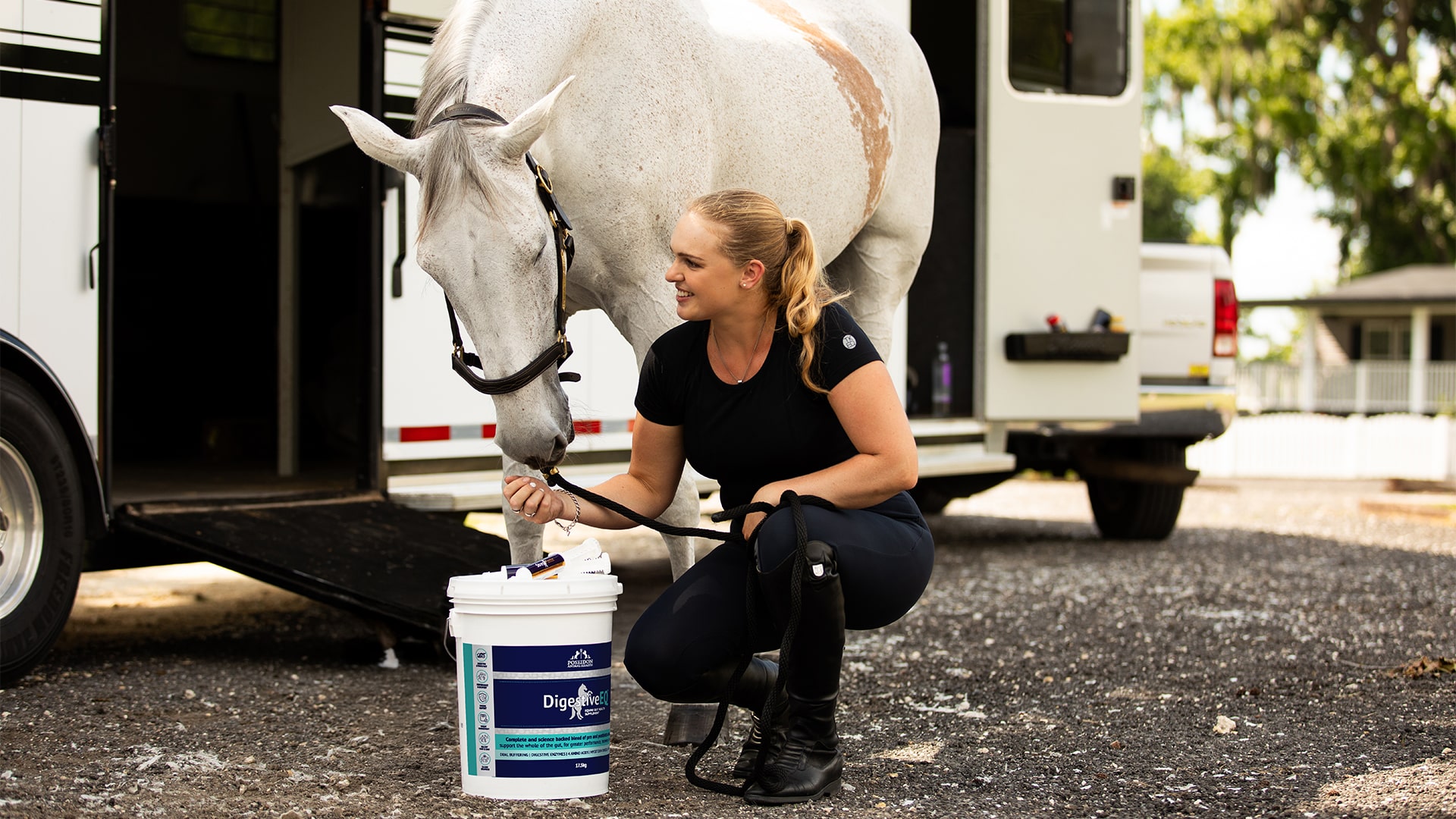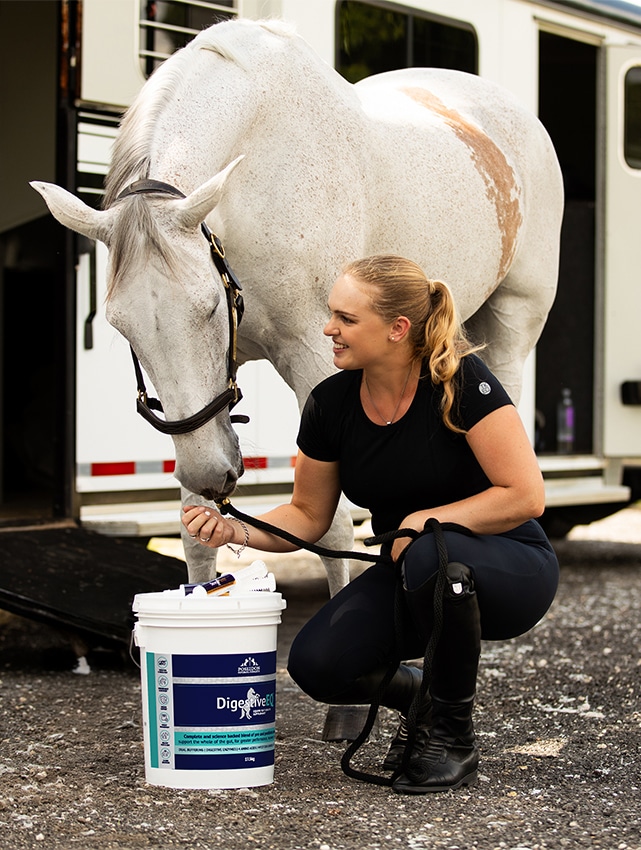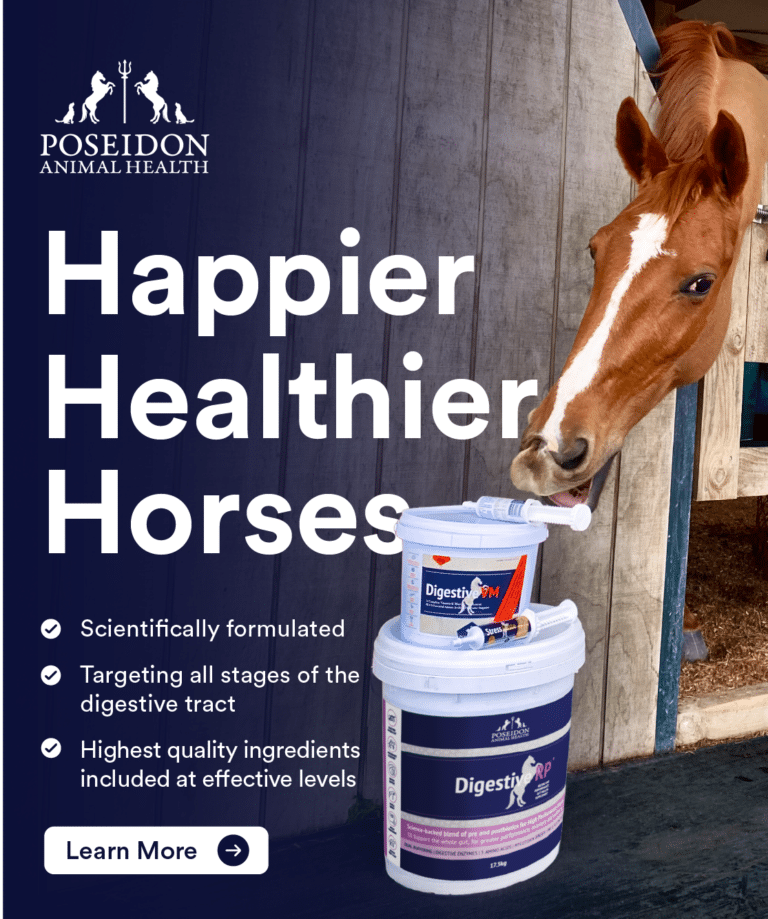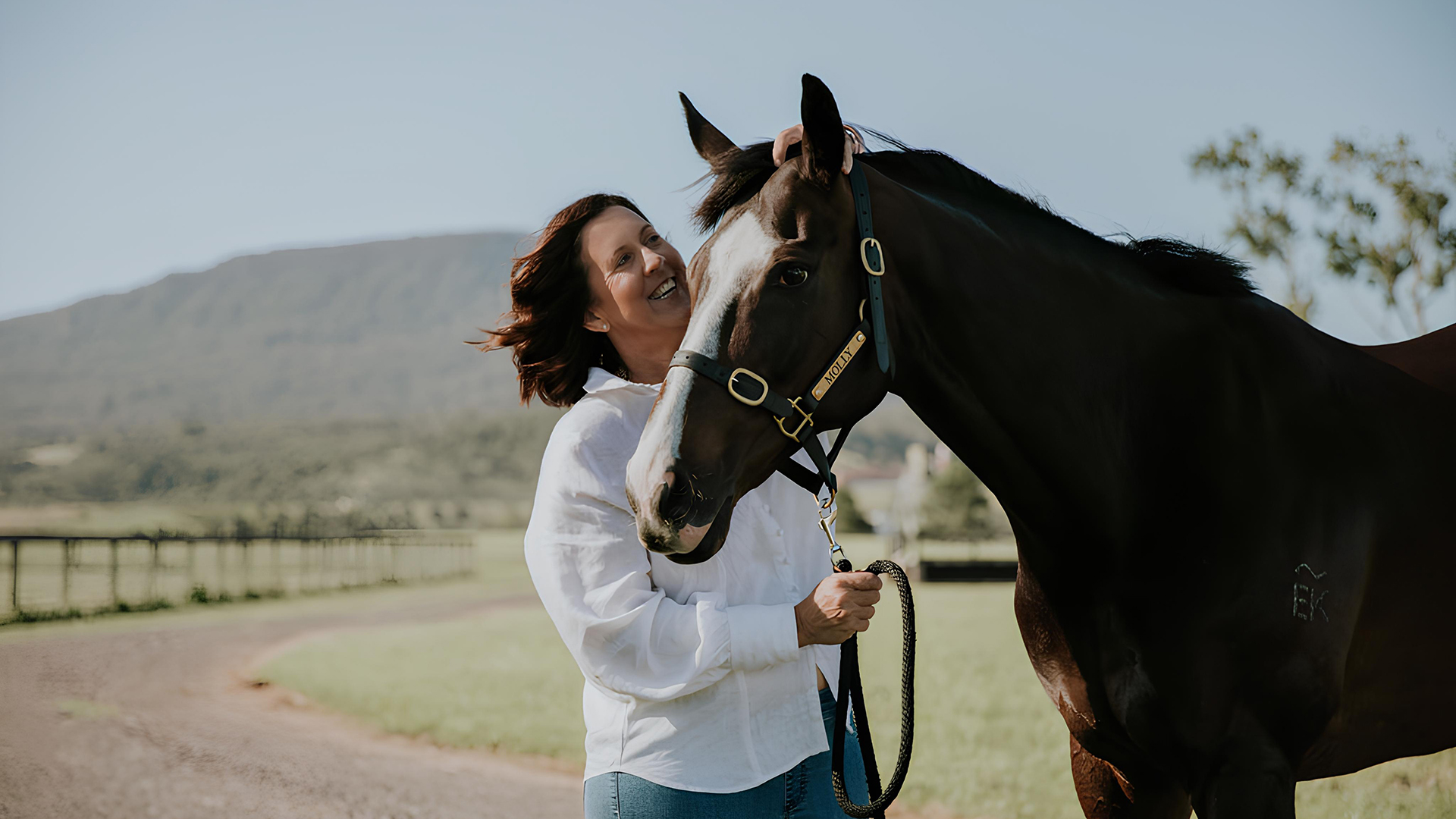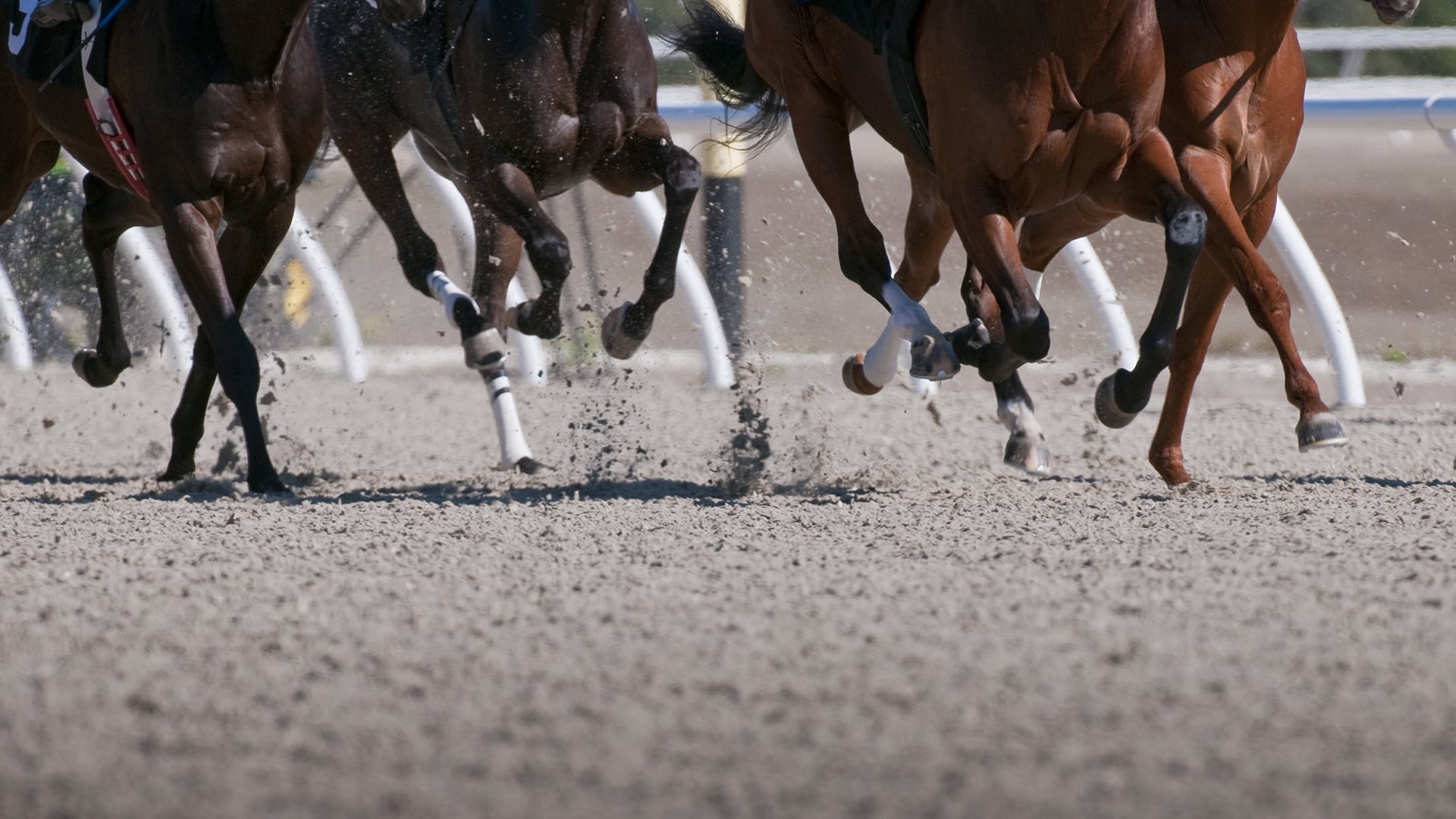Good gut health in horses isn’t just about firm manure or the absence of stomach ulcers. A horse’s gastrointestinal tract is critical to their wellbeing and affects not only their physical health, but also their mental health.
The gastrointestinal (GI) tract of an adult horse is a significant size, with a length of about 30 metres and a total volume of approximately 180-230 litres. This lengthy tract is divided into the foregut (oesophagus, stomach and small intestine) and the hindgut (cecum, large colon and small colon).
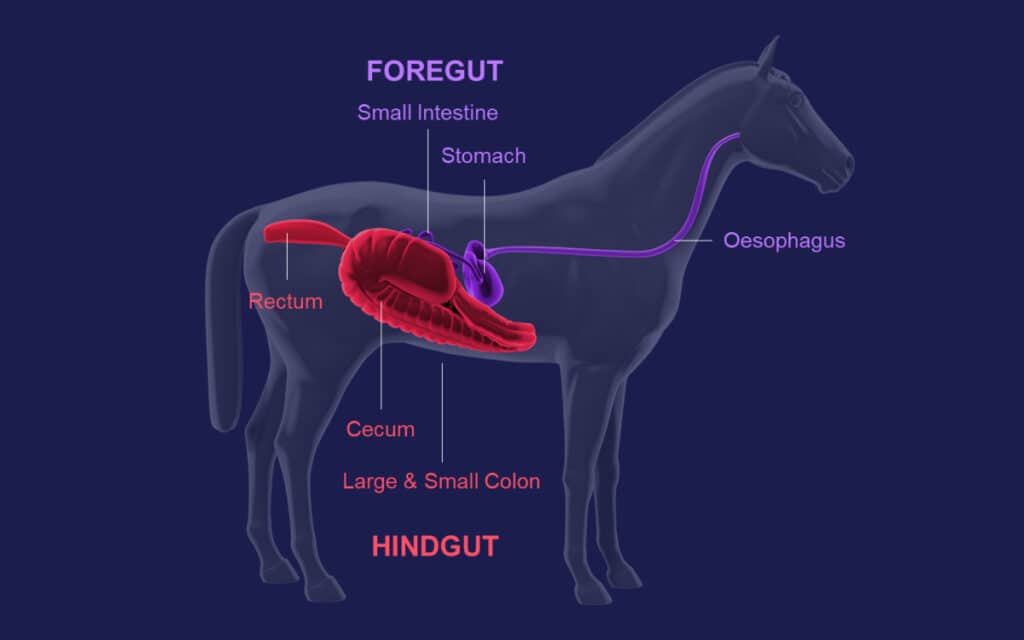
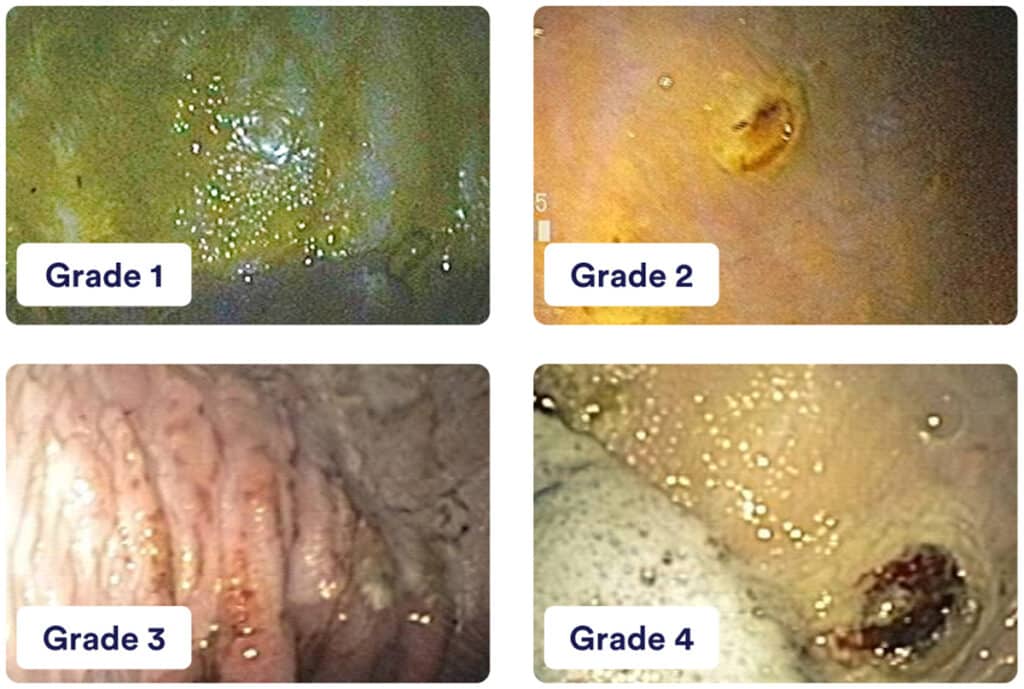
A horse’s stomach can be visualised by scoping to assess stomach ulcers; pictured here are ulcers graded according to severity.
It’s risky to say, ‘because I can’t see it, it doesn’t exist’. We know that the microbiome is hugely important in the horse,” says Dr Roddy. “Horses, which are hindgut fermenters, are designed to process their food and produce their energy, their hormones, and their vitamins and minerals from their hindgut… their microbial health is really important.”
Horses have been evolving for an incredible 55,000,000 years, however they have spent just 5,000 of those domesticated – in a mere 0.01% of their time on Earth, humans have dramatically impacted the way they live.
WHAT IS THE MICROBIOME & WHY DOES IT MATTER?
As Dr Roddy explains, humans have changed a horse’s diet, ability to roam, social life and general environment – however, the horse’s gut hasn’t changed.
“We’ve completely changed the shape of a horse, but we don’t think about the fact that their microbiome is really the same as their wild ancestors. We have a wild microbiome that’s now in domestication and it hasn’t had time to catch up.”
A horse’s microbiome – that is, the ecosystem of microbes that live in the gut – is crucial to good health. Despite their size and strength, horses are completely reliant on these microbes, particularly those that live in the hindgut. Among them are ‘good’ and ‘bad’ bacteria, and the balance between these – as well as the integrity of the gut wall – has a major impact on a horse’s health, performance, recovery, behaviour and appearance.
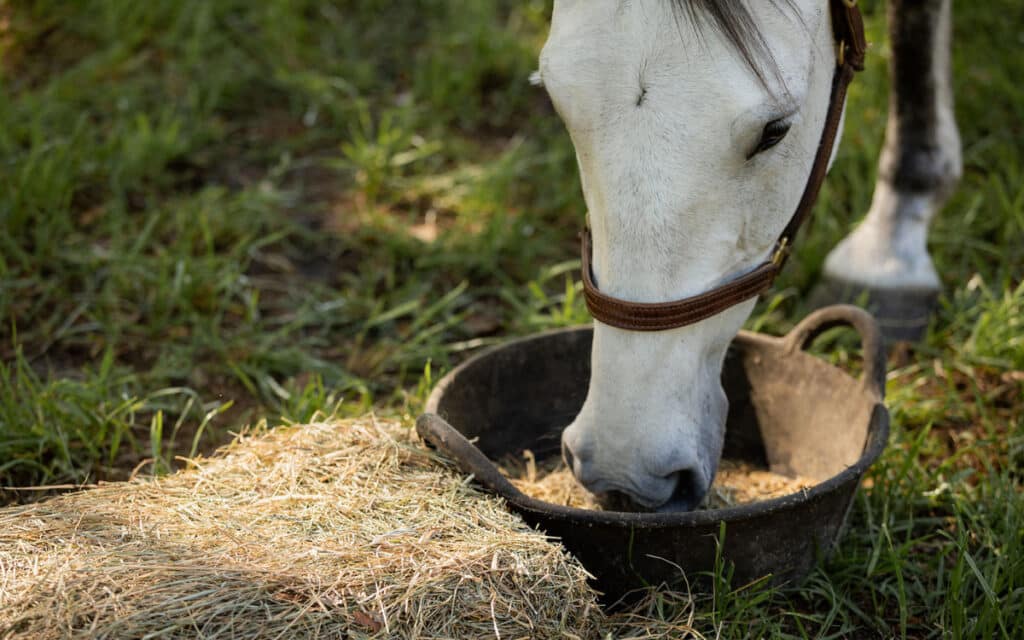
Horses should have access to fibre at all times to keep the gut constantly nourished.
Good bacteria are fibre fermenters; horses benefit from their by-products, including volatile fatty acids (VFAs), which horses uses as an energy source. Good bacteria also create B vitamins, amino acids and vitamin K, and are critical to keeping the gut wall and mucosal lining intact.
On the other hand, bad bacteria ferment starch and sugar to produce lactic acid. Lactic acid accumulates in the gut, making the hindgut in particular an acidic environment. To make matters worse, good bacteria don’t like an acidic environment and so if the balance is tipped in the favour of bad bacteria, the good bacteria begin to slow down and can even die – further affecting microbial balance. The result is decreased fibre fermentation, and this can lead to leaky gut, systemic inflammation or endotoxemia (causing colic/laminitis).
It’s not just high starch diets that can damage a horse’s microbiome: so too can sudden diet change, stress, and the use of antibiotics and non-steroidal anti-inflammatory drugs (NSAIDs).
WELFARE PRIORITIES
A horse’s psychological wellbeing – and in some cases, resulting behaviour – is perhaps one of the more surprising health aspects that can be linked to the gut.
“Guthealth is directly related to the horse’s ability to cope with stress; cortisol is the stress hormone, and the production of cortisol is directly related to gut health,” says Dr Roddy of the connection.
“Any horse that is not exposed to acres and acres of free grazing and the ability to be outside and live like a horse is going to be under some level of stress, because they’re not living the way they evolved to live. We add on top of that the pressures of training, travel and competition… and all of the other things that go along with keeping domesticated animals… and we are definitely putting our horses under stress.
“I have my own horses; I ride them, I compete them. I know it’s a little bit of a slippery slope where you draw the line in terms of what is best for the horse, but I think our horses are under stress because they’re all being kept in a way that is different from evolution,” she observes.
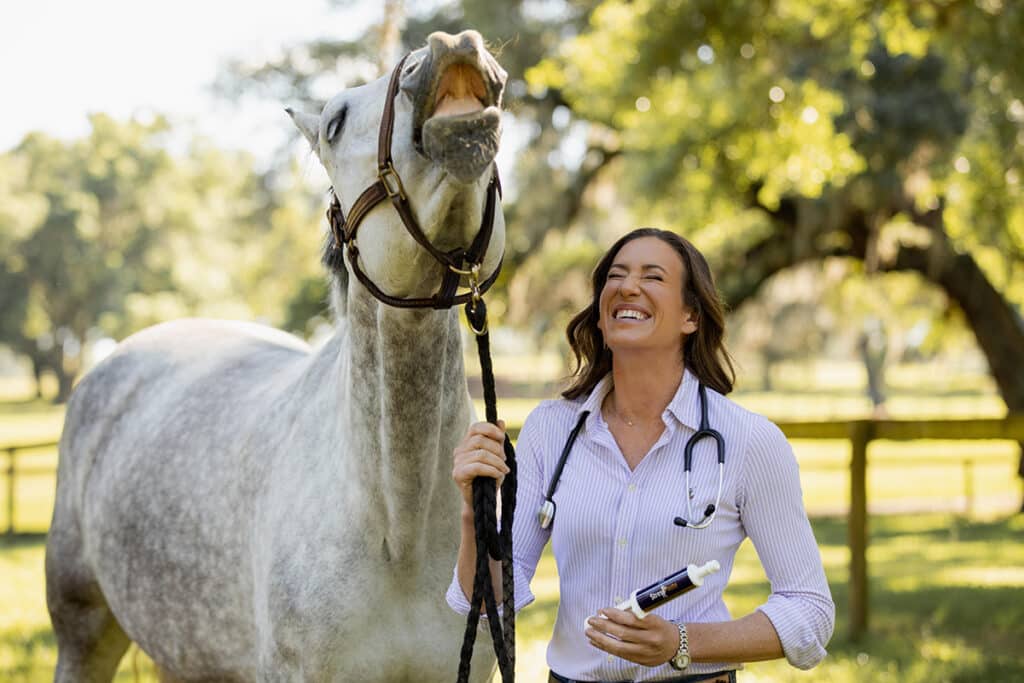
Veterinarian Dr Erin Roddy of Poseidon Animal Health is an advocate for the importance of promoting good gut health in horses.
As Dr Roddy explains, a horse’s stress response is designed to be brief, not prolonged. “In the wild, if a horse is scared of a predator, they either run away or don’t make it. That’s a brief stress and then it’s over. But we now have horses that are stressed for hours if not days at a time… perhaps they’ve travelled to competition and it’s a new place, the water smells funny, the stable seems strange, they’ve got a new neighbour… and that stress goes on for days. Their system was never designed to cope with that kind of stress for a long period of time.
“Therefore, the better we can take care of our horses in terms of their diet, their management, and supporting their gut health… that is right up there when it comes to welfare priorities. It’s a self-fulfilling prophecy: the better we look after them, the healthier they are and the better they perform. It’s in our best interest to do that.”
Dr Roddy says we need to be considering what is going to reduce a horse’s stress level. “What’s the best that we can do in terms of taking care of our horses and keeping them happy and healthy?”
PHYSIOLOGICAL & PSYCHOLOGICAL STRESS
In response to the realisation that many horses – particularly sport horses – are under some level of stress, Poseidon set about developing a product that could assist with this at a physiological level, rather than simply masking the issue.
“We found that when horses are in stressful situations and they don’t want to eat and drink, we’re in real trouble, both from a health perspective and a performance perspective. A lot of people try to approach that situation either with ulcer medication or with a sedative type calming paste… but what that’s doing is either stopping the stomach from producing acid or it’s trying to sedate the horse.
“Neither of those approaches are dealing with the physiological effects that the horse is undergoing because they are under stress. Our theory is that if they’re stressed physiologically, they’re also going to be stressed psychologically… and that’s where some poor behaviour, such as spookiness or a lack of focus, comes from.”
Poseidon began looking at all the parts of physiology that are affected by stress based on research, and then looked at ingredients that could help treat those physiological issues. The result was StressPaste, an easy-to-administer, all-natural and show-safe supplement designed to support the horse in stressful situations.
“We coat the stomach; we buffer the acid but without stopping acid production, because acid production is really important; we support the immune system with antioxidants; we include hydration elements; we include B vitamins to encourage eating and drinking; and we include amino acids to help keep muscles going and also repair the GI tract,” explains Dr Roddy of the supplement’s functions.
“By dealing with the physiological stress, the horses are not in pain and they’re not uncomfortable. They keep eating and drinking… and all of a sudden, they are so much calmer and so much more focused because we’ve actually treated their physiological stress and that has calmed their psychological stress.”
‘WHEN WE KNOW BETTER, WE DO BETTER’
As someone who competes her own horses, Dr Roddy is not anti-competition. She does, however, believe that protecting horses from the physiological effects of stress is critical. “It’s also a much better approach than trying to sedate them because they’re not able to cope with what we’re inflicting on them,” she notes.
“It’s been amazing the effect that we have had just by considering what’s causing a horse’s stress from the inside. If we can address that, the difference in the horse is amazing.
“My favourite thing about horses is they really do try to give their best and they keep trying to give their best. When we support them and we do the best by them, we just get an even better horse, and they give us even more. They’re very special animals and I feel very privileged to be working in a space where I can help horses. When we know better, we do better.”
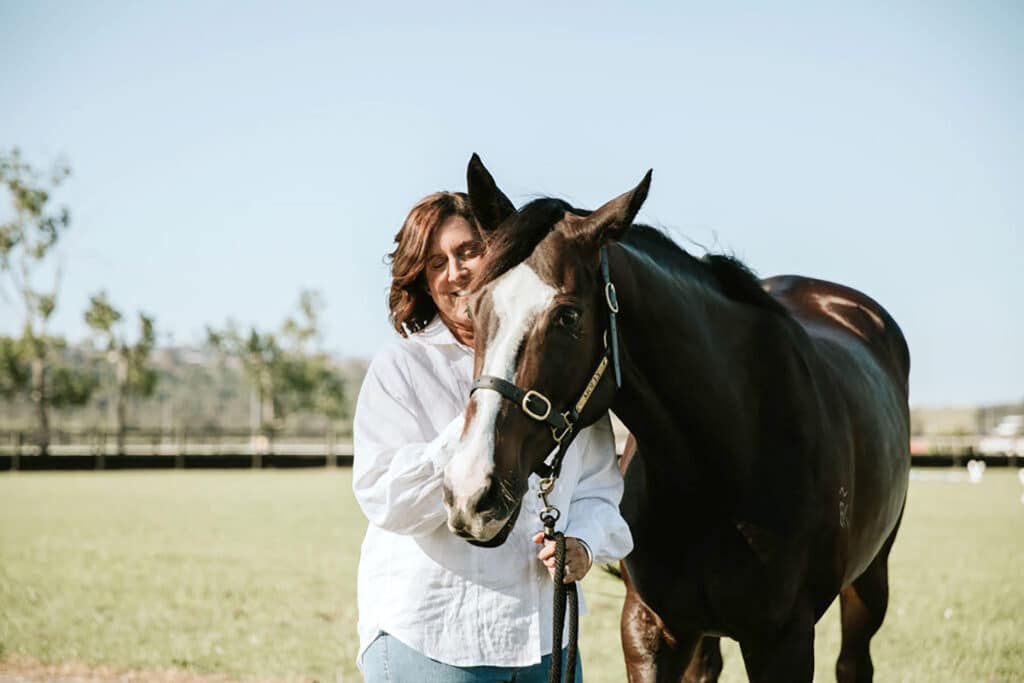
Linda Goldspink-Lord discovered the power of the gut through her own personal health journey and founded Poseidon Animal Health when she realised how improved gut health could greatly benefit her own horses.
TIME TO RESET
With of team of experts – who alongside Dr Roddy includes leading equine nutritionists, Dr Chris J. Mortensen, PhD and Nikita Stowers, MSc BSc BBS, and veterinarians in Dr Mandy Finnimore, BVSc(hons) and Dr Tiffany Hall, DVM, DACVIM – Poseidon Animal Health is known for its commitment to education and community engagement. ‘The Ultimate Gut Reset’ is a 90-day program that horse owners can implement to assist in rebalancing their horse’s gut health.
The gut lining regenerates every 2–3 weeks, and its microbial populations are highly responsive to changes in diet, stress, and environment. They take time to rebalance. A 90-day period is ideal to allow the gastrointestinal system to repopulate with beneficial bacteria, restore optimal function, and build a robust gut that’s better adapted to cope with change.
It begins with diet. What and how a horse is fed is the single most important element of a horse’s health – so always start with diet. You should provide access to fibre at all times to keep the gut constantly nourished; ideally feed 2kg of fibre per 100kg of body weight from a variety of long-stemmed fibre sources such as grass, hay, and other fibres such as beet-fibres. Ideally, lucerne hay should be included as 25-30% of the total diet, as this provides a rich source of protein and amino acids, while also acting as a natural gastric buffer to support digestive health. Limit cereal grains and starchy feed sources; if you are including cereal grains such as barley and corn, ensure they are extruded or micronised and ideally do not exceed ≤100g/kg BW/meal or ≤200g/kg BW/day. Finally, where possible test hay for its nutritional quality and ensure your horse is receiving adequate vitamins and minerals throughout the season for a well-balanced diet.
Stress must be managed. Following diet, it’s important to ensure stress is managed effectively. Keep routines consistent, especially during travel and competition, and avoid sudden diet changes. New feed and hay should be introduced slowly over a minimum of 14 days. For stomach health, feed 1-2kg of lucerne hay 30-60 minutes before exercise and also ensure your horse has two consecutive days off from exercise.
Maximise turnout time, ensure access to shelter, and provide your horse with the ability to see and interact with other horses; in other words, you want to keep their living conditions as close to natural as possible. If grazing is minimal, introduce a slow feeder to encourage natural foraging behaviour and help prevent empty periods in the digestive tract. It’s also important to schedule an annual check-up with your vet to keep ahead of any developing concerns, and also ensure regular check-ins with your dentist, farrier, and saddle fitter. An effective deworming program based on faecal egg counts – rather than indiscriminate deworming that can lead to parasite resistance – is of course also important.
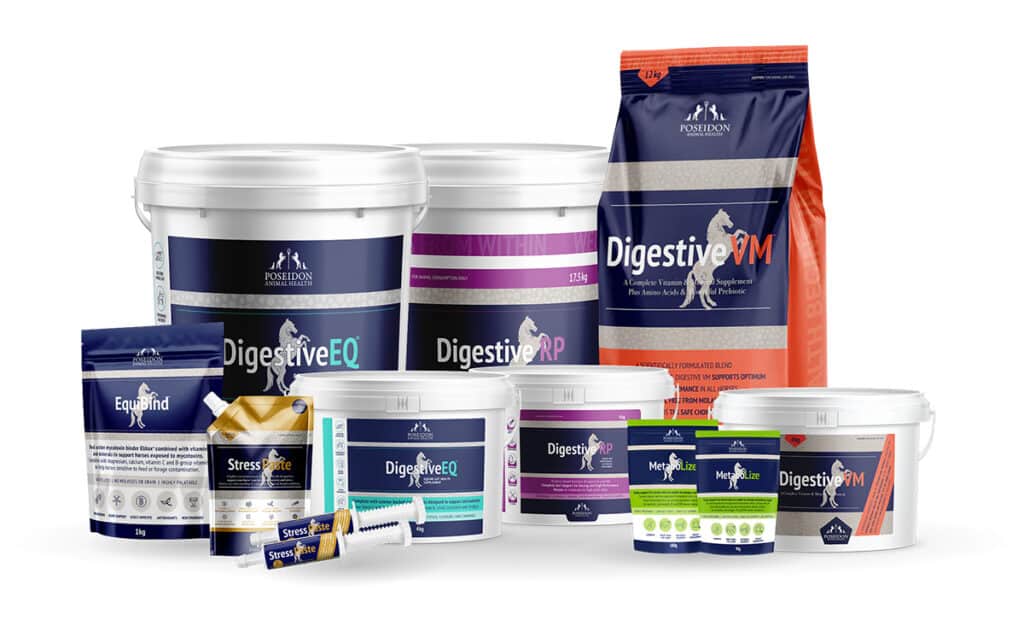
Poseidon Animal Health’s range of supplements can assist with improving a horse’s gut health when combined with diet and considered management practices.
Supplements can assist the process. Poseidon Animal Health’s core gut health products, Digestive EQ and Digestive RP – the latter formulated specifically for sport horses and horses under more stress through travel, stabling and competition – are backed by science and designed to support gut health in the modern-day domestic horse.
Used in combination and at the right stages of a gut health reset, Digestive RP and StressPaste can accelerate your horse’s path to improved gut function and ensure continued support into the future. Creating a lasting balance and resilience from the inside out, a gut reset is about laying the foundation for your horse’s long-term health. You will not only have a horse that likely performs better – you’ll have a horse that is simply happier and healthier. Our horses give us so much, and we certainly owe them that.
For further information on how to fast-track your horse’s gut reset, you can learn more from Poseidon Animal Health here. EQ
